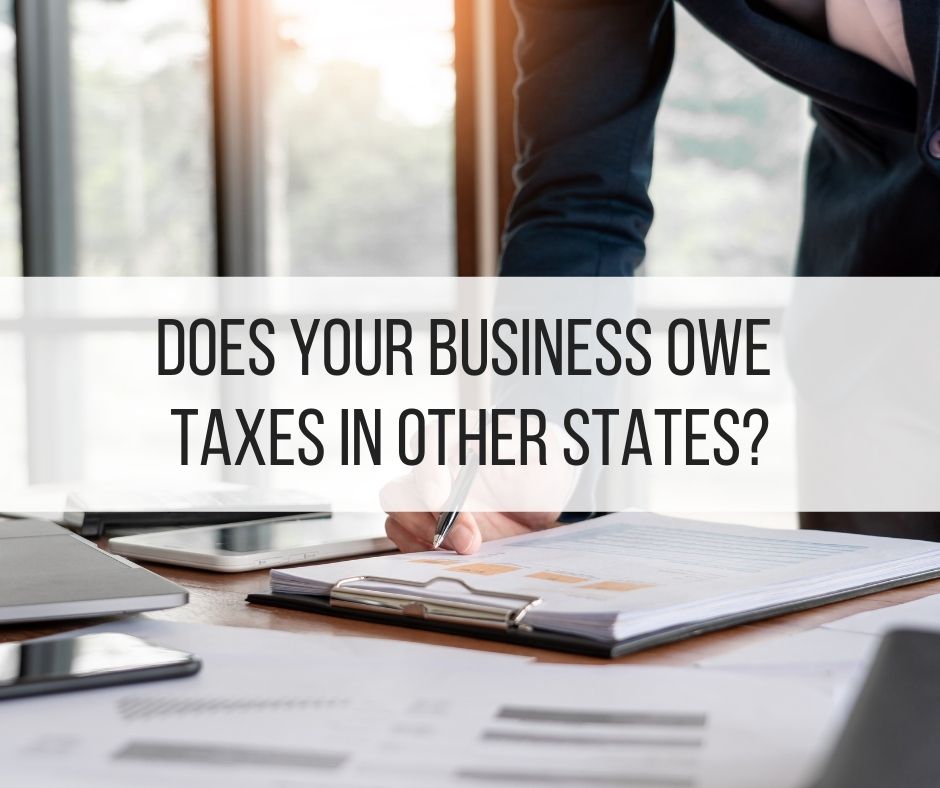
State taxes often aren’t at the forefront of a business owner’s grand strategy. Instead, federal taxes take center stage, and in many cases, state rules follow along.
In today’s economy, with moves toward remote work and “borderless” transactions, businesses are increasingly exposed to taxation in states other than where they are organized and headquartered. Understanding when tax liability arises in other states is an integral part of planning, especially for businesses that want to take full advantage of a remote workforce.
The tax professionals at Ferguson Timar are here to answer your business tax questions. These are some of the fundamental topics business owners should consider when it comes to state taxes.
When does tax liability arise in other states?
The answer to this question is often less straightforward than a business owner would prefer. For all of its advantages, the federal system allows every state leeway to create their own tax rules, so long as they meet minimum standards established by federal constitutional law. Although substantial efforts have been made to standardize rules across the country, important differences remain.
States refer to legal entities organized in other states as “foreign businesses.” In the United States, every type of business, including sole proprietorships, LLCs, and corporations, is organized under state law. The state in which a business is organized determines its domicile. For purposes of every other state’s laws, it is “foreign,” even though it is organized within the United States.
Most jurisdictions within the United States start their tax analysis by asking if a company is doing business in that state. Another term for this process is to ask whether the business has a nexus with the state. Corporate statutes define what “doing business” means. Such definitions tend to be frustratingly ambiguous. Being domiciled, or maintaining a regular office in a state, are clear examples of “doing business” in that state—even if the bulk of your work is elsewhere.
What establishes a tax nexus in other states?
In California, engaging in “any transaction for the purpose of financial gain within California” is enough to expose a business to potential tax liability in the state. California also specifies precise thresholds of sales, property value, or payroll that will trigger tax liability.
The California nexus rules are just one example among many. A comprehensive review of even a single state’s rules is beyond the scope of a blog post. Instead, let’s look at a few common ways a state establishes a nexus between it and a foreign business entity.
- Employees
In the era of remote work, employers in expensive states like California are beginning to reach beyond their state borders to hire talent. Hiring an employee in another state typically triggers a nexus with that state. In addition to an income tax liability, some states, like California, treat paying wages as a trigger for paying corporate income tax.In Colorado, for example, a business becomes subject to state corporate taxation in the tax period in which its payroll within the state exceeds $50,000. Although the business may be subject to other requirements, such as paying into the state’s unemployment fund, it may be able to avoid state taxation so long as it stays below that threshold and otherwise doesn’t trigger the state’s nexus standards.
The sometimes-low thresholds for triggering state taxation where employees reside is a significant reason why some businesses choose, where possible, to treat workers in other states as contractors rather than employees.
- Property
A business that owns property in other states can also become subject to corporate taxation in those states. To return to our Colorado example, the same value threshold for payroll—$50,000—also applies to property.The property nexus sometimes catches business owners by surprise. To avoid unnecessary tax exposure following a transaction out-of-state, tax planners might suggest forming a separate legal entity to own the assets.
- Transactions
Transactions are the most complex piece of the nexus analysis. Most isolated transactions won’t trigger taxation. Taking the team on a holiday retreat to Hawaii most likely does not create a nexus in Hawaii. The same rule can apply for an isolated purchase of equipment. A California construction business buying a $100,000 piece of equipment in Nevada probably is not creating a nexus with Nevada through that single transaction, provided that the equipment is brought back to California. The more a business directs its efforts into a state, the more likely the tax nexus will be established.
Consult with the advisors at Ferguson Timar
This article barely scratches the surface of a complicated and important area of tax rules. We strongly advise business owners to consult with a tax professional about any major transaction in other states to ensure compliance with local rules and, if necessary, to devise strategies to mitigate state tax exposure.
How can we be of service to your business? Send us an email or give us a call at (714) 204-0100 to get in touch.
